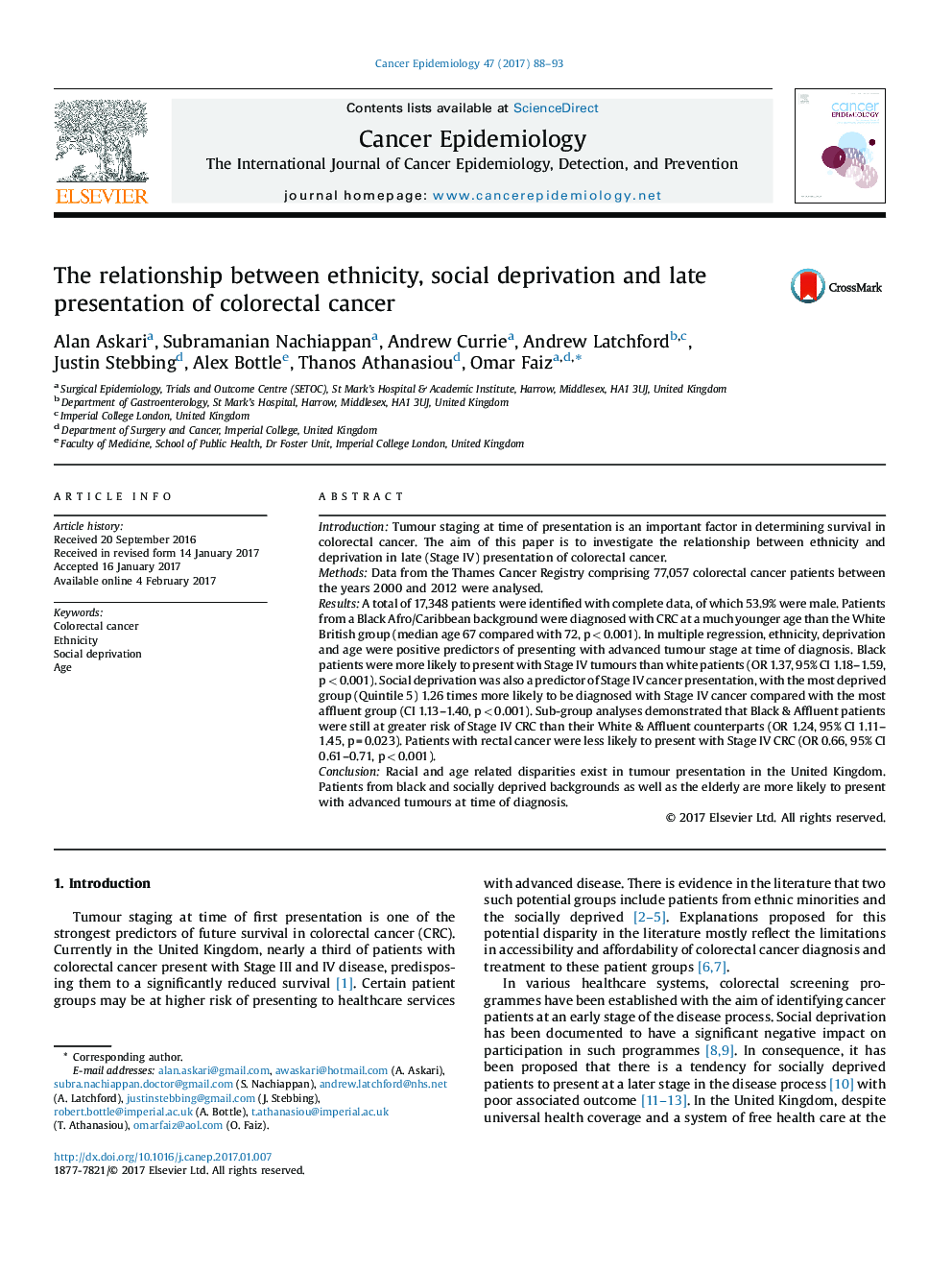| Article ID | Journal | Published Year | Pages | File Type |
|---|---|---|---|---|
| 5524926 | Cancer Epidemiology | 2017 | 6 Pages |
IntroductionTumour staging at time of presentation is an important factor in determining survival in colorectal cancer. The aim of this paper is to investigate the relationship between ethnicity and deprivation in late (Stage IV) presentation of colorectal cancer.MethodsData from the Thames Cancer Registry comprising 77,057 colorectal cancer patients between the years 2000 and 2012 were analysed.ResultsA total of 17,348 patients were identified with complete data, of which 53.9% were male. Patients from a Black Afro/Caribbean background were diagnosed with CRC at a much younger age than the White British group (median age 67 compared with 72, p < 0.001). In multiple regression, ethnicity, deprivation and age were positive predictors of presenting with advanced tumour stage at time of diagnosis. Black patients were more likely to present with Stage IV tumours than white patients (OR 1.37, 95% CI 1.18-1.59, p < 0.001). Social deprivation was also a predictor of Stage IV cancer presentation, with the most deprived group (Quintile 5) 1.26 times more likely to be diagnosed with Stage IV cancer compared with the most affluent group (CI 1.13-1.40, p < 0.001). Sub-group analyses demonstrated that Black & Affluent patients were still at greater risk of Stage IV CRC than their White & Affluent counterparts (OR 1.24, 95% CI 1.11-1.45, p = 0.023). Patients with rectal cancer were less likely to present with Stage IV CRC (OR 0.66, 95% CI 0.61-0.71, p < 0.001).ConclusionRacial and age related disparities exist in tumour presentation in the United Kingdom. Patients from black and socially deprived backgrounds as well as the elderly are more likely to present with advanced tumours at time of diagnosis.
